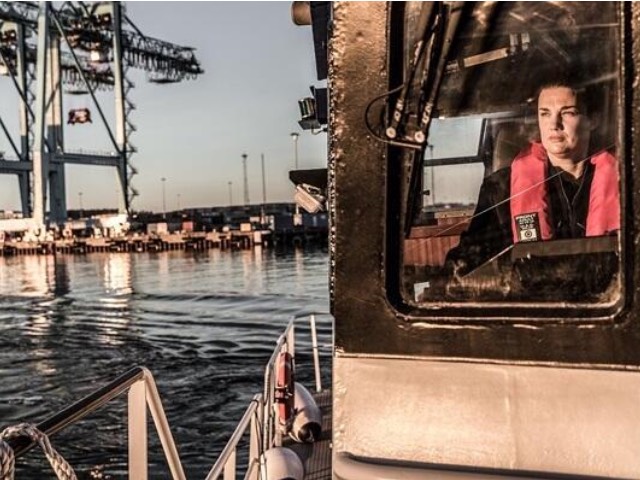Volvo Penta is helping propel marine commercial professionals into the future with the latest technology in the fields of sustainability, automation, electrification, and connectivity. The company aims to perform and transform – balancing the development of today’s technology with future solutions for the marine commercial professional. This will be achieved by predicting and exploring the challenges of today and the needs of tomorrow.
In line with the Volvo Group’s new ambitions, Volvo Penta has accelerated its sustainability aims. The Volvo Group recently announced its ambition to be a net-zero emissions company by 2050, at the latest. And the Group is now committing to the Science-Based Targets Initiative (SBTI) – with targets and roadmaps to be established during 2021. To support these sustainability goals, Volvo Penta is accelerating its efforts to reach zero emissions – through fossil-free, renewable fuels, electric, and hybrid technology.
“We have to perform and transform – in parallel,” says President of Volvo Penta, Heléne Mellquist. “We will perform by improving our current portfolio, based on current customer and market needs. At the same time, we are looking ahead; predicting future needs, and applying innovative technologies to evolve and transform accordingly. Balancing the development of today’s technology and future solutions is a demanding but inspiring challenge.”

Perform: Putting the Marine Commercial professional first
“As part of the company’s ‘fit for use’ approach, we put focus on the operator,” says Mellquist, “looking into their work environment, increased efficiency, uptime, productivity, etc.”
Volvo Penta IPS is one of the company’s success stories in this area. The IPS delivers superior features to today’s customers while being Future Proof – compatible with new technological advances in automation, connectivity, electrification, and zero emissions. The company recently reached a key milestone of 30,000 IPS units in the market.
Transform: Looking to the future
Volvo Penta has been working in the marine automation, connectivity, and electrification fields for a few years. These innovations can help to improve the environment and experience for the operator.
Automation and digitalization help operators focus on the task at hand in a safe way. There are already features on the market like the Dynamic Positioning System – onboard a number of vessels around the world.
“It is about designing an experience with ease, precision, and safety in mind,” explains Mellquist. “The Volvo Group is also expanding its automation focus, where we believe we can benefit and learn from the commercial transport sector and apply best practices for use at sea.”
Additionally, increased digitalization and connectivity will open possibilities for fleet management. The smart and connected vessel delivers benefits like safety, as well as increased efficiency and productivity. Which is why, just last week, the company revealed its Easy Connect App for marine commercial professionals. The data from this app helps operators, fleet managers, and service providers monitor fuel savings, routes, and improve overall operation. The app will be continuously updated and contribute to both ease of experience while also creating a good working environment.
Finally, and perhaps the most exciting field of development in the journey to zero-emissions, is electromobility. Building on the Volvo Group’s knowledge of electrification in the commercial transport sector Volvo Penta is now adapting this technology for marine applications.
“We are looking into viable business cases and learning and testing,” explains Mellquist. “We are building on our existing fully integrated system approach – but to achieve this we must work closely with partners and customers,especially in the early development phases. A recent example is a collaboration with Danfoss Editron and Danish operator MHO & Co.”
Overcoming the challenges and learning
As the company tests and learns it will discover solutions to key problems and challenges facing the future marine commercial industry – e.g., charging infrastructure capabilities, new business models for services, services growth, etc.
“In the future,” says Mellquist, “marine commercial professionals can expect a continued focus on sustainable innovation from Volvo Penta. We believe in many ways the professional market will pave the way for leisure markets – being the first to adopt electrification, advanced emission performance, and pushing the envelope for new features. Collaboration is key to capture opportunities across the industry. We will continue to work closely with marine commercial professionals – to ensure we deliver the best solutions now and in the future.”
Source: Volvo Penta









































